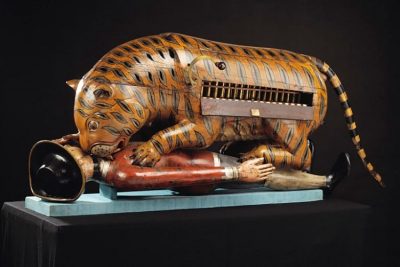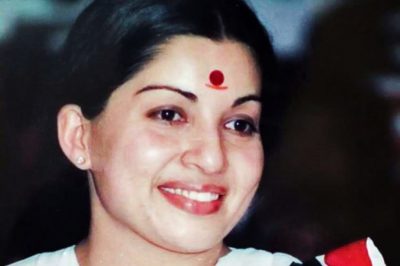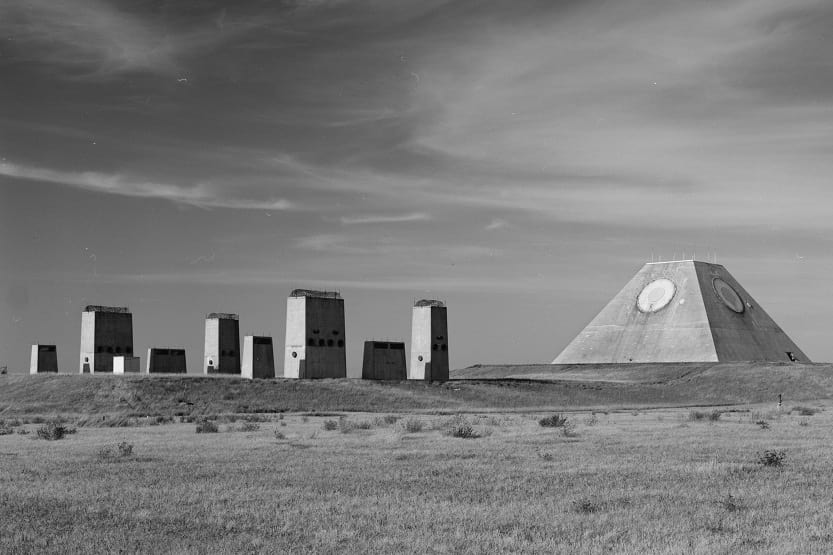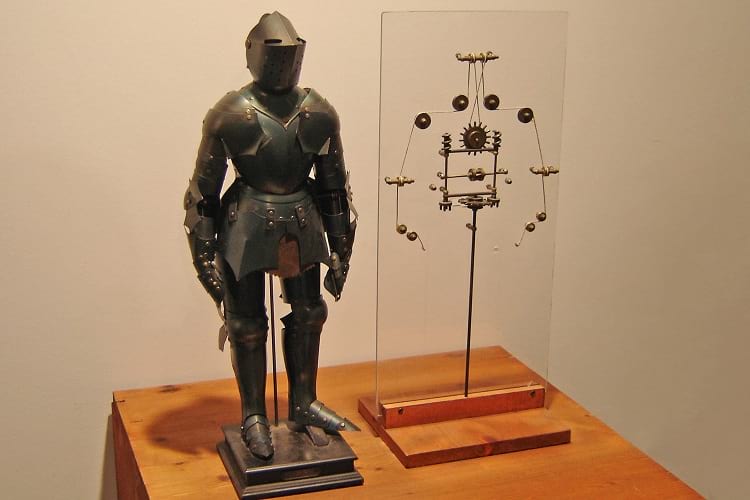Noor Inayat Khan: Britain’s First Muslim War Heroine
Share
Born in Russia, on 1st January 1914, Noor-un-Nisa Inayat Khan, also known as Nora Inayat Khan, was Britain’s first Muslim war heroine during the Second World War. She was also a published author and was widely known by her pen-name Nora Baker. Her mother was an American and her father was an Indian Muslim, which provided her with a mixed and rich cultural heritage.

Noor Inayat Khan. (Imperial War Museums)
In her short lifetime of thirty years, Noor Inayat had many achievements. She was awarded the George Cross, posthumously, for her commendable service in the Special Operations Executive (SOE). The George Cross is said to be the ‘second highest award’ within the United Kingdom honours system.
Early life of Noor Inayat Khan
Noor Inayat Khan was the eldest child, and had three siblings – Vilayat (1916-2004), Hidayat (1917-2016), and Khair-un-Nisa (1919-2011), all of whom were born in London unlike Noor herself. Her parents were often thought to be an unlikely couple. Her father, Inayat Khan, belonged to a noble Indian Muslim family who descended from the lineage of Tipu Sultan, the ruler of Mysore in the 18th century. Inayat Khan lived in Europe as a Sufi teacher and musician. Her mother, Ora Baker was born in Albuquerque and had a half-brother, Pierre Bernard, who was an American yogi. She met Noor’s father in San Francisco via her brother when she attended one of the lectures during Inayat Khan’s visit to the United States. Their son Vilayat later became the leader of the Sufi Order International (founded by Hazrat Inayat Khan).
During the World War I, the family moved to Bloomsbury in London, where Noor Inayat’s siblings were born and she attended nursery in Notting Hill. In 1920 they relocated to France, and began to live in their house ‘Fazal Manzil’, which was located in Suresnes, Paris. However, tragedy struck the family in 1927 with the death of Inayat Khan while he was away on a pilgrimage to India. Noor was only 13 when her father passed away, and she had to shoulder the responsibility of the entire household – her three young siblings, and her mother who was paralysed with sorrow.

Fazal Manzil. (Celette / Wikimedia Commons)
An accomplished young woman
Noor was a highly accomplished young woman, and was described as quiet, shy, dreamy and sensitive as a young girl. From a tender age, she enjoyed writing poems and short stories, and had a flair for music. She pursued a course at the Sorbonne in Child Psychology, and also attended Ecole Normale de Musique de Paris, where she began composing for instruments like the harp and the piano. She began writing stories for children and poems for several magazines and Radio Paris. Noor published her first book in 1939 in London, called ‘Twenty Jataka Tales’ when she was only 25 years old. It was the traditional Buddhist Jataka Tales that inspired her to write this book.
However, in 1940 after the outbreak of the Second World War, the peaceful routine of Noor’s life was disrupted. She lost her family home when the German troops invaded France and the Khan family was forced to flee and escape to London.
Service at the Women’s Auxiliary Air Force (WAAF)
Even though Khan had been greatly influenced by her father’s philosophical teachings and had been brought up on Mahatma Gandhi’s principles of non-violence, she was determined to help defeat the raging Nazism. Her brother Vilayat’s support encouraged her to join the Allied Forces, and she volunteered for the Women’s Auxiliary Air Force (WAAF) in November 1940. Noor qualified as an Aircraftwoman 2nd class, and she was sent to be trained as a wireless operator. Subsequently in June 1941, she was trained at bomber training school. However, she was dissatisfied with the work she was doing and wanted to contribute more to the war efforts. This led her to apply for a transfer within the British forces in a field that would allow her to assist in a more dynamic manner.
Noor’s training at special operations executive (SOE)
In 1942, Noor had been recruited by the Special Operations Executive, which was an ‘underground espionage and sabotage task force’ that had been set up by Winston Churchill, who was the Prime Minister of Britain at the time. In February 1943, Khan was appointed at the Air Ministry, Directorate of Air Intelligence first, and then reassigned to First Aid Nursing Yeomanry (FANY). She was eventually transferred to Wanborough Manor in Surrey near Guildford. Later, she was sent to be trained to be a wireless operator in enemy territory, to Aylesbury, which is the county town of Buckinghamshire.
Previously, female agents had been sent only as couriers, and Khan was the first to be sent as a wireless operator. She had an advantage over the others who had just begun their training as she had received wireless telegraphy training before. Later, she was sent to Beaulieu, for further training with other agents.
Even though she was a quick learner and very precise, her physique and meek manners were considered to be unsuitable for the extremely difficult SOE training. Her trainers mentioned that she was clumsy and very scared of weapons. Her seniors believed that due to her spiritual beliefs she was unable to make quick decisions that were necessary in her field of work. Her trainers also noticed that she often left codebooks lying around and her ‘fist’ (style of tapping keys) was quite heavy as a result of her bloated fingers. During her mock Gestapo interrogation training sessions, Khan would get terrified and often give away personal information. She would get extremely scared and would lose her voice. She would continue to shake and would turn white with fear even after training was over.
Khan’s mission in Paris
Khan worked hard to try and ameliorate her physical fitness, Morse code skills, and she successfully conquered her fear of weapons. Very soon she was selected to go to Paris on her first mission as a covert wireless radio operator. The mission was believed to be highly dangerous as she was supposed to send and receive messages regarding the operations of the enemy while keeping her cover intact from the Gestapo.
The risk of being captured was very high but that did not deter Khan. She was flown into France in 1943 where she posed as a children’s nurse. Her codename was ‘Madeleine’. However, the mission had been sabotaged from the very beginning, and within a week of her arrival, the Gestapo had managed to capture nearly all the SOE operators who were in Paris. Noor was brave and refused to be extracted and continued her mission, and performed the work of six radio operators on her own.
Capture and imprisonment
While it remains uncertain what actually led to the capture, the conjecture is that Khan was betrayed by a double agent named Henri Dericourt, or perhaps Renee Garry, who was the sister of an SOE-F network leader and had been working for the Sicherheitsdienst. They captured her in October 1943, but she put up a lot of resistance. Mere hours after her capture, she attempted to escape from her cell in Paris but she was unsuccessful. During the interrogation sessions, Khan did not reveal any information to the Gestapo. However, they recovered her notebooks in which she had a meticulous record of all the messages that she had sent as an SOE operative. They then used this to send fake messages that led to the deaths of many other SOE agents.
A few weeks later, Noor attempted to escape again and refused to sign a declaration that stated that she would make no further attempts to run away again. She was taken to Germany and placed under solitary confinement, where she was brutally beaten and hardly fed. They kept her shackled and continued to torture her, but Khan refused to give away any information.
Death of Noor Inayat Khan
Khan was transferred to the infamous Dachau concentration camp, along with three other agents, on 13th September 1944. While the other prisoners were immediately killed upon arrival, Noor Inayat Khan was beaten and tortured before finally being shot in the head.
Remembering Noor Inayat Khan
In 1949, she was posthumously awarded both the prestigious George Cross by the British government and the Croix de Guerre by the French government. Her name can also be found on an SOE memorial plaque at Dachau. In February 2019, Noor also became the first woman to be accorded the rare honour of her wartime home in London being given a ‘Blue Plaque’. An unsung hero no more, her bravery and efforts during the war will always be remembered by people all around the world.
Enjoyed this article? Also, check out “A Cross-Dressing Explorer, Isabelle Eberhardt Crossed Geographic and Social Boundaries to Follow Her Heart“.
For more unusual stories & intriguing news follow STSTW Media on Instagram and Facebook. Also, join our live chat discussion on Twitter.
Do you have a story/photo for us?
We welcome your contribution at [email protected] Please include your name, city, state, and country.
Fact Analysis:
STSTW Media strives to deliver accurate information through careful research. However, things can go wrong. If you find the above article inaccurate or biased, please let us know at [email protected]













